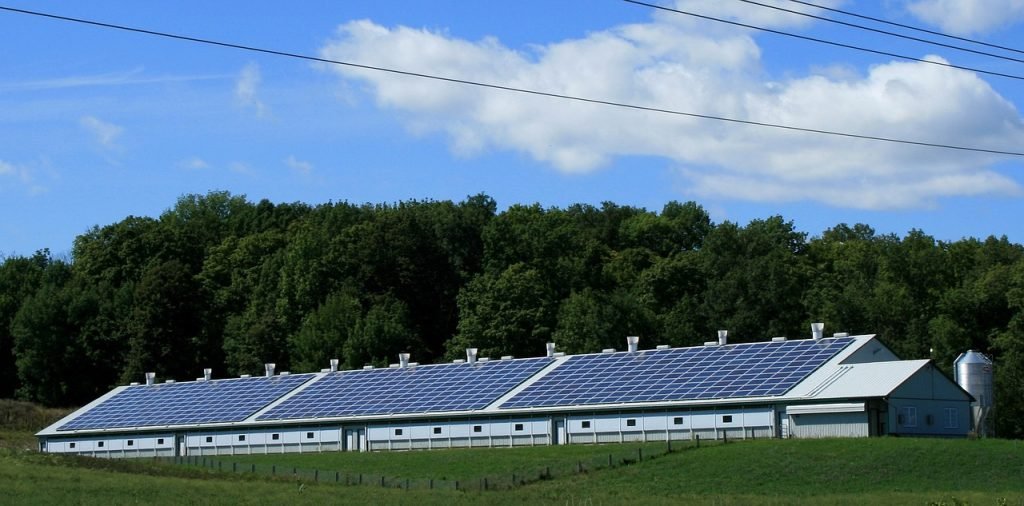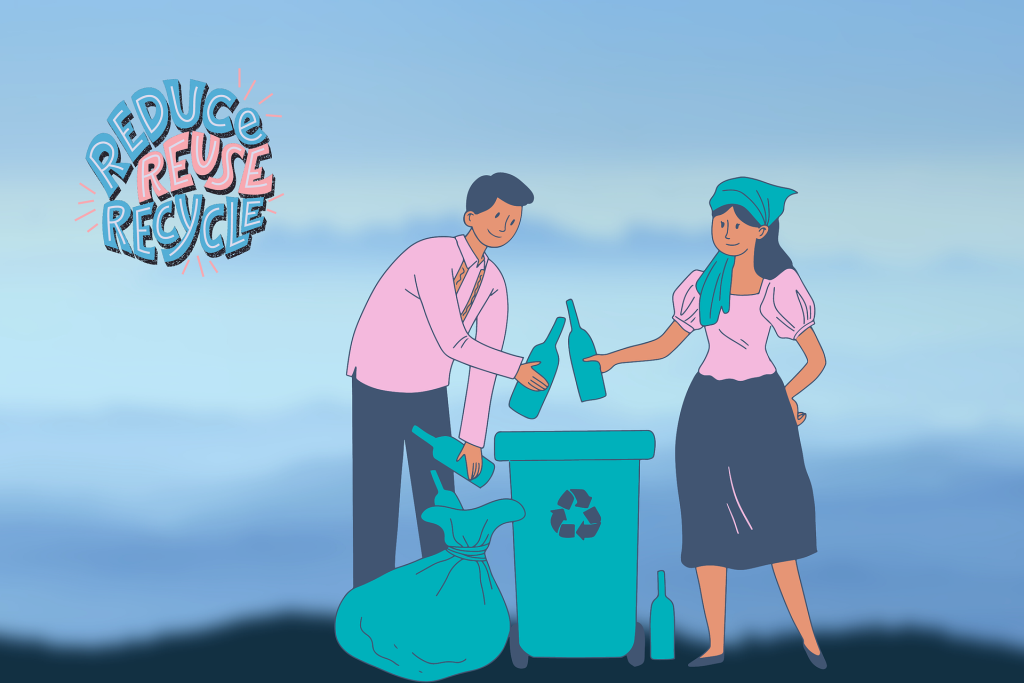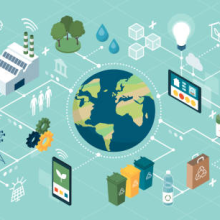Eco-Friendly Ideas| Simple Tips to Think Green Around the Home
In today’s world, living a more eco-friendly life is more than just a trend. It’s a lifestyle that promotes sustainability, reduces waste, and preserves the environment for future generations.
We are living in a time of unprecedented environmental crisis, and it is up to us to make meaningful changes to save the planet.
By embracing eco-friendly practices, we can reduce our carbon footprint and help preserve the environment for future generations.
Eco-friendly living is a lifestyle that reduces our impact on the environment. It involves making conscious decisions about the products we buy, the food we eat, and how we use energy and resources.
There are many simple ways to begin living more eco-friendly. One of the best ways to start living a more eco-friendly life is by implementing simple green practices in your home.
We can also incorporate eco-friendly ideas into our homes such as using biodegradable cleaning products and investing in green technology such as solar panels.
By thinking green (eco-friendly lifestyle) around the home, we can make a difference in protecting our planet for generations to come.
In this article, we’ll share some easy and effective tips to help you think green around your home and make your everyday life more eco-friendly.

Section 1: Energy Efficiency
In this section, we’ll talk about how to reduce your home’s energy consumption and lower your carbon footprint.
To reduce your environmental impact and save money on your energy bills, making your home more energy-efficient is a great place to start. Here are some simple tips:
- Use LED light bulbs instead of incandescent bulbs, which can save you up to 75% on your lighting costs.
- Unplug appliances when not in use to eliminate “phantom energy” or use a power strip to easily turn them off.
- Switch to Energy Star certified appliances when it’s time to replace them.
- Use a programmable thermostat to automatically adjust the temperature in your home based on your schedule.
- Consider installing solar panels to generate your own energy and reduce reliance on fossil fuels.
These practices can significantly reduce your carbon footprint and energy bills. Additionally, these tips are not only good for the environment but also your wallet. So, start implementing them today and enjoy the benefits of an energy-efficient home.
Section 2: Reduce, Reuse, Recycle

In this section, we’ll discuss ways to reduce waste and promote recycling in your home.
Reducing waste and promoting recycling are important steps towards creating a more sustainable future. Here are some tips to help you reduce, reuse, and recycle in your home:
- Use reusable shopping bags: Plastic bags are one of the most common types of litter found in our environment. By using reusable shopping bags, you can help reduce the amount of plastic waste that ends up in landfills and oceans.
- Avoid single-use plastics: Single-use plastics, such as straws, utensils, and water bottles, have a significant impact on our environment. Instead, choose reusable alternatives, such as metal or glass straws, bamboo utensils, and refillable water bottles.
- Recycle paper, plastics, and glass: Recycling is an effective way to reduce waste and conserve resources. Check with your local recycling program to see what items can be recycled in your area, and make sure to properly clean and sort your recyclables before placing them in the recycling bin.
- Compost food scraps and yard waste: Composting is an eco-friendly way to reduce the amount of organic waste that ends up in landfills. Composting food scraps and yard waste creates nutrient-rich soil that can be used in your garden.
- Donate old clothes, furniture, and electronics: Donating items that you no longer need or use is a great way to reduce waste and help those in need. Many charities accept donations of clothes, furniture, and electronics, and some even offer pick-up services.
By following these simple tips, you can make a positive impact on the environment by reducing waste and promoting recycling. Remember, every small step counts towards creating a more sustainable future.
Section 3: Sustainable Home Cleaning
In this section, we’ll talk about using eco-friendly cleaning products and methods to reduce your home’s environmental impact.
ooking to keep your home clean while being mindful of the environment? Here are some sustainable home cleaning tips:
- Opt for non-toxic cleaning products: Many traditional cleaning products contain harmful chemicals that can be detrimental to the environment and your health. Look for non-toxic, biodegradable, and eco-friendly options instead.
- DIY cleaning products: Consider making your own cleaning products using natural ingredients like vinegar, baking soda, and lemon juice. These natural ingredients are great at cleaning and disinfecting surfaces without damaging the environment.
- Swap paper towels for microfiber cloths: Microfiber cloths are a fantastic alternative to disposable paper towels. They are long-lasting, reusable, and can be washed and reused multiple times.
- Use vinegar and baking soda: Vinegar and baking soda are two natural ingredients that can be used to clean a variety of surfaces. Vinegar is an effective stain remover and disinfectant, while baking soda can remove odors and tough stains.
Incorporating eco-friendly cleaning products and methods into your cleaning routine can help reduce your impact on the environment. Not only that, but these tips are also great for your health and wallet. Start using them in your cleaning routine today.
Section 4: Water Conservation
In this section, we’ll discuss ways to conserve water and reduce your home’s water usage.
Water conservation is vital for the sustainability of our planet. Here are some tips for conserving water in your home:
- Fix leaks promptly: A dripping faucet or leaky pipe can waste a significant amount of water over time. Regularly check your plumbing for leaks and fix them right away.
- Install low-flow fixtures: Low-flow showerheads and faucets use less water without sacrificing water pressure. Installing these fixtures can significantly reduce your home’s water usage.
- Water plants in the morning or evening: Watering your plants during the hottest part of the day can cause water to evaporate quickly. Water plants in the morning or evening when it’s cooler to reduce water waste and ensure that plants receive the moisture they need.
- Use a rain barrel: Collect rainwater with a rain barrel to water plants and gardens. This reduces tap water usage and can save money on water bills.
By following these tips, you can help conserve water and reduce your home’s water usage. Remember, every drop counts towards a sustainable future.
Conclusion
Implementing simple eco-friendly tips can make a significant impact on the environment and promote sustainability in your home.
Going green doesn’t have to be difficult or expensive. Every small change you make can add up to make a big difference.
Making sustainable changes is not an all-or-nothing approach. Every small change you make can contribute to a larger positive impact on the environment.
From using LED light bulbs to energy-efficient appliances and reducing waste through recycling and composting, to using eco-friendly cleaning products and conserving water, these easy-to-implement tips can significantly reduce your carbon footprint.
Incorporating sustainable practices into your daily routine not only helps protect the environment, but it can also save you money on your energy and water bills.
Start making changes today and do your part to create a more sustainable future for generations to come.
Here are some great sources that can provide further valuable insights into eco-friendly tips and ideas for around the home.
Energy Saver Renewables to Save You Money: https://www.energy.gov/energysaver/lighting-choices-save-you-money
Recycle, reducing, and reusing basics: https://www.epa.gov/recycle
Reduce plastic use: https://www.nationalgeographic.com/environment/article/reduce-plastic-use
What is Composting?: https://www.epa.gov/recycle/composting-home
Workplace Safety and Health Topics: https://www.cdc.gov/niosh/topics/default.html
Water Sense | US EPA: https://www.epa.gov/watersense
Methods and Importance of Environmental Conservation: https://www.conserve-energy-future.com/methods-and-importance-of-environmental-conservation.php


